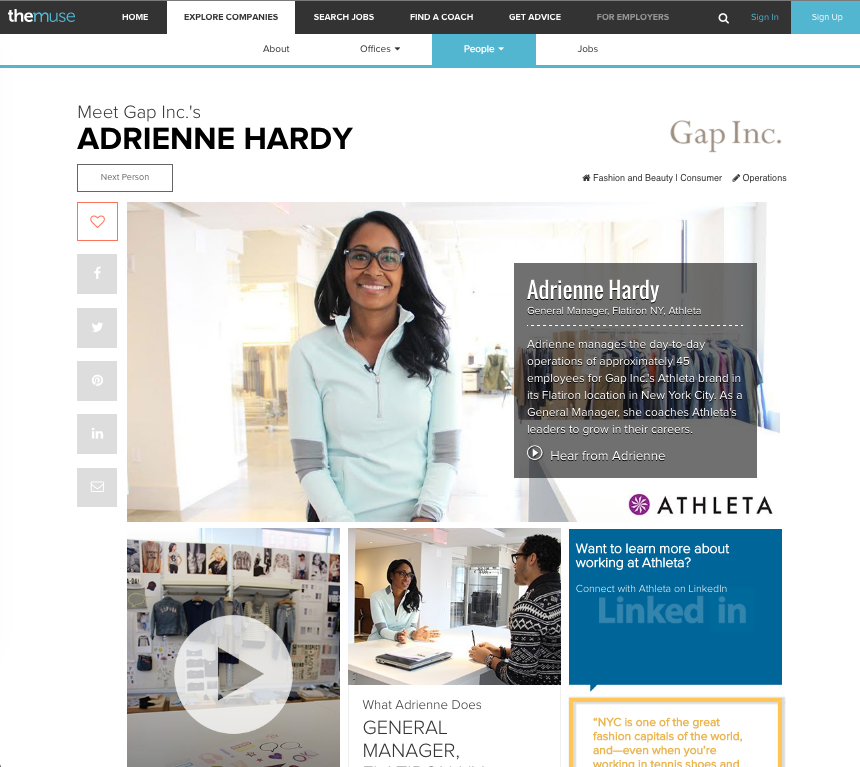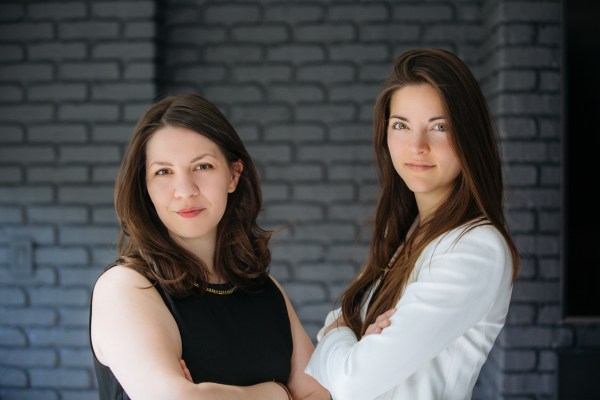The Muse, a New York-based career site that offers job opportunities, skill-building courses, coaching, and video profiles meant to show what it’s like to work at different companies, has raised $16 million in Series B funding led by Icon Ventures. Earlier backers Aspect Ventures, DBL Partners and QED Investors also joined the round, which brings funding for the 4.5-year-old startup to $28.7 million.
Co-founder and CEO Kathryn Minshew says the platform’s users are largely women — 65 percent of them, in fact — with 50 percent of users below age 30, another quarter of them in their 30s, and the rest age 40 and over. That’s apparently been good for business. “When women find The Muse,” says Minshew, “they’ll come back and tell us, ‘We told 15 people,'” about the platform.
What’s also good for business is LinkedIn’s announced sale last week to Microsoft for a stunning $26.2 billion, says Minshew. We talked yesterday about why the acquisition bodes well for The Muse, as well as what the company is building right now that could double its size.
TC: You founded the Muse with two other women, Alex Cavoulacos and Melissa McCreery, with whom you worked at McKinsey. Cavoulacos is COO but McCreery is no longer with the company. What happened?
KM: She’s an advisor and a current PhD student at [University of California San Francisco] studying cancer biology. Whenever I come up to SF, I usually stay with her.
TC: The Muse has a variety of revenue streams, but the biggest right now is recruiting. How many companies are listing jobs and corporate profiles on the site at this point?
KM: We’re in the high 500s, with everything from smaller businesses to Fortune 1000 companies using the platform. In finance, there’s Vanguard, Wells Fargo, Goldman Sachs. In travel and hospitality, there’s Marriott. We have The Gap in retail; HBO, Conde Nast, Bloomberg and Hearst in media; and insurance companies like Geico and Aflac.
TC: You also do content marketing, letting sponsors basically give your users recommendations around career-related products and services. How big a business is that?
KM: It makes up a small but growing part of our model — probably high single digits to low double digits. We grew revenue last year by 5x, and sponsored content probably grew by the same percentage. Deloitte, for example, sponsored an article about how to go from a military to a civilian career that was authored by an employee of theirs who has done it.

TC: The company, which now has nearly 100 employees, says it’s operating in 40 markets. Where has it seen the most traction?
KM: New York and San Francisco are our top two markets, but not by crushing margins. We have users in Charleston, Atlanta, Austin, Denver. We’re also very interested in expanding internationally. The question is timing.
TC: How many job seekers are using the platform?
KM: There are 50 million people using The Muse every year at this point, either to browse jobs or take classes or book coaches or consume content that might [help them with their professional development].
TC: Users can book coaches? Is that new?
KM: It is new. We launched it in November. It’s the realization of the third piece of the puzzle, which is that in people’s careers, sometimes before they find a new job, they need advice or guidance or to learn a new skill. So “Coach Connect” is our first step toward building out skill and professional development. In its first iteration, we sourced a network of expert career coaches, breaking them down into mentor, coach, and master coach based on their level of experience [and charging accordingly for access to them].
We’re also experimenting with classes and other forms of skill development and one-to-one and one-to-many advice. If you’re promoted to manager and your company doesn’t have a great management program, it might help to talk with a management coach to get your bearings. People are connecting almost entirely via video chat. You choose the package that you need based on where you are in your career.
TC: Is this coaching hourly or project-based, and who sets the price?
KM: Every service is standardized and has a price point that we set. So if you want a session of leadership coaching, every master coach will charge the same. For a resume review, for example, you could pay a master coach $479 for a 60-minute chat to understand what your career goals are, an updated resume, and unlimited edits for two weeks after you get the draft.
TC: Interesting that you’re weaving in classes and coaching into your other offerings.
KM: We think it’s harder to build an independent platform that connects people with coaches and classes than have it as a piece of bigger platform. Every month, nearly a million people read a single article that we published a few months ago about the most prominent interview questions and how to answer them. Many of [these visitors] get what they need from that piece of content. Others go on to explore other areas of The Muse, and some have questions at the end.
TC: How big could this business become? Like, half of what you’re doing currently?
KM: Potentially. Right now, it’s a fraction of our revenue. Our recruitment business is much more mature. But we see a massive opportunity in helping individuals navigate their career. When I look ahead, a big part of our potential is helping funnel members of our community to the right online class, the right coach, the right job, or the right piece of content.
TC: You have a much younger user base than LinkedIn. How does its sale impact you, if at all?
KM: We think it’s fantastic news for us. LinkedIn does specialize in a different type of user — they’re more corporate, they’re further along in their careers. A lot of companies turn to us [to help fill] entry level roles and to LinkedIn for VP titles. And it provides a great utility. But LinkedIn is a failure as a lovable consumer product. It’s a transactional resource. And I think its acquisition will only accelerate those trends. [Having] created a community that [trusts us], I think it’ll be even easier to distinguish ourselves.
Photo of Alex Cavoulacos and Kathryn Minshew courtesy of The Muse.
